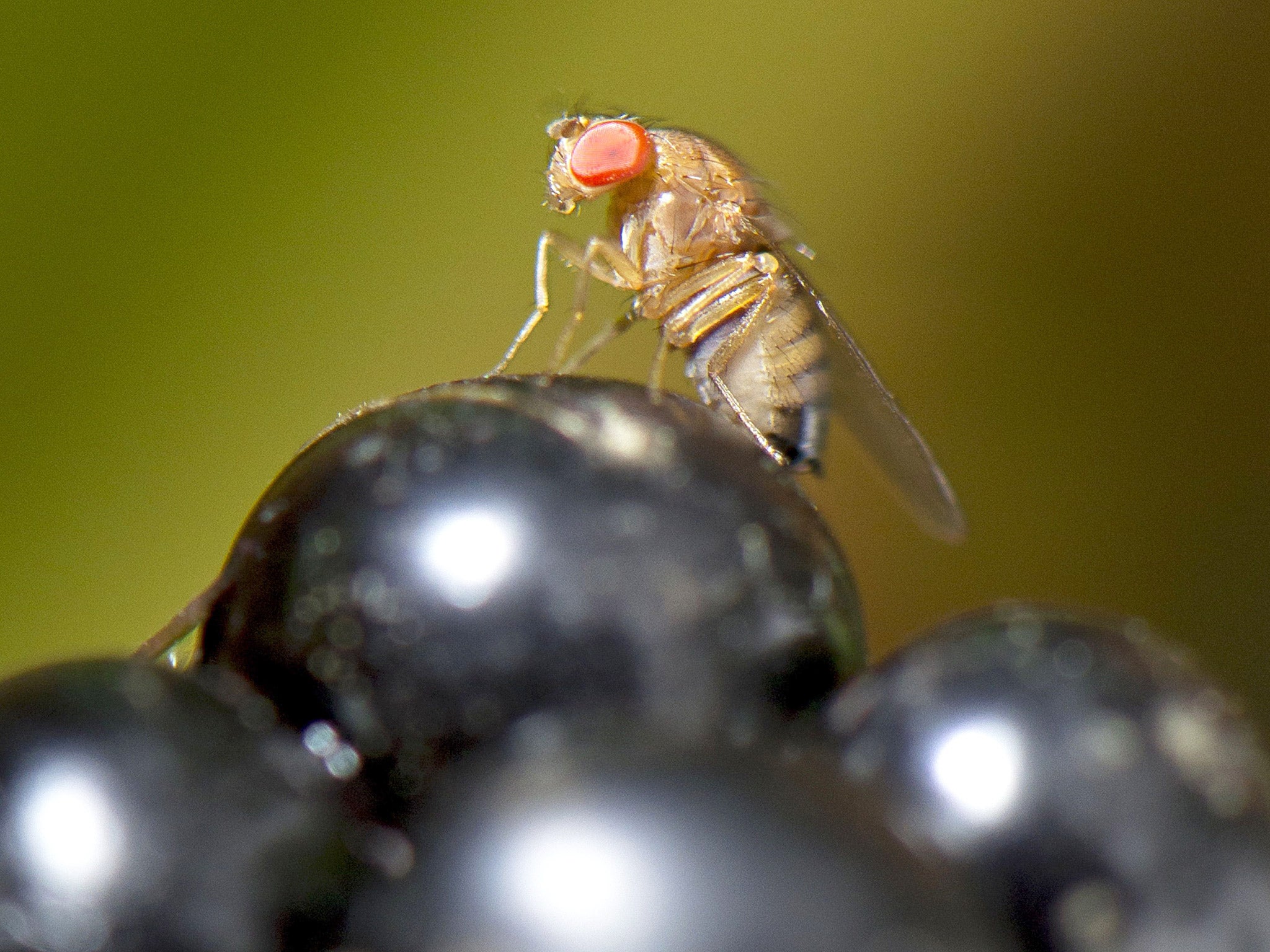How fruit fly brains could one day cure jet lag
Researchers are investigating insects' circadian clocks

Your support helps us to tell the story
From reproductive rights to climate change to Big Tech, The Independent is on the ground when the story is developing. Whether it's investigating the financials of Elon Musk's pro-Trump PAC or producing our latest documentary, 'The A Word', which shines a light on the American women fighting for reproductive rights, we know how important it is to parse out the facts from the messaging.
At such a critical moment in US history, we need reporters on the ground. Your donation allows us to keep sending journalists to speak to both sides of the story.
The Independent is trusted by Americans across the entire political spectrum. And unlike many other quality news outlets, we choose not to lock Americans out of our reporting and analysis with paywalls. We believe quality journalism should be available to everyone, paid for by those who can afford it.
Your support makes all the difference.A bizarre experiment which saw scientists keep the brains of fruit flies alive in a dish for six days may hold the key to explaining – and eventually treating – jet lag.
After removing the brains of the flies, researchers at the University of California used a low-light camera to document how the circadian clock circuit is “reset” by light.
The study – published in the Current Biology and funded by the US government – marks the first time that scientists have seen in real time how specific neurons in intact brain systems react to light cues which are comparable to rapid travel across different time zones.
A single light pulse cues the biological clock of the fruit fly brain to shift two hours ahead of its original schedule and then effectively resets itself, researchers discovered.
“Broad features of this pattern of circadian circuit response to light” may be applied to humans and other mammals,” it states.
Lead researcher Todd C Holmes, professor of physiology and biophysics, UCI School of Medicine, said: “Remarkably, our work indicates that the way you feel while jet-lagged exactly reflects what your nervous system is experiencing: a profound loss of synchrony.”
The idea of speeding up the disruption of the body clock ahead of travel in such a way that it resets itself more quickly – an estimated two days – could “lead to treatments that’ll have a big impact on our travel practices,” he added.
Professor Holmes said that jet lag recovery – normally takes four days for the time shift tested. A longer shift, for example one experienced after flying from London to Los Angeles, would likely require a longer time for recovery.
“That two-day difference is quite a bit if it means you feel great from the beginning of your arrival, say, in Italy,” Holmes noted. “You’re going to feel bad on the plane in any event, so it’s best to get the adjustment over with so you can enjoy your destination.
Commenting on the study, Professor Erik Herzog, a circadian biology expert, said: “With extraordinary cellular resolution, the researchers show that some cells shift faster than others following a pulse of light. This might become a useful therapy in treating jet lag.”
Join our commenting forum
Join thought-provoking conversations, follow other Independent readers and see their replies
Comments